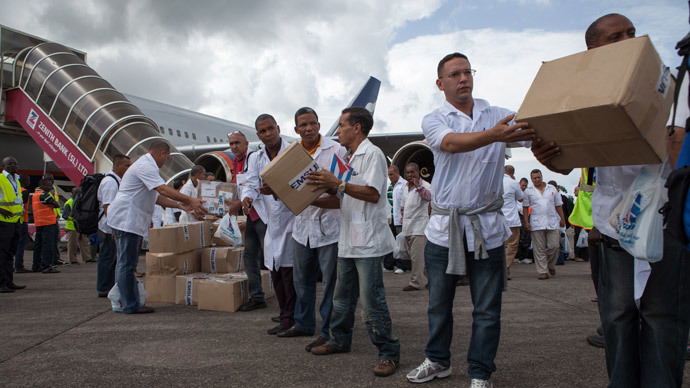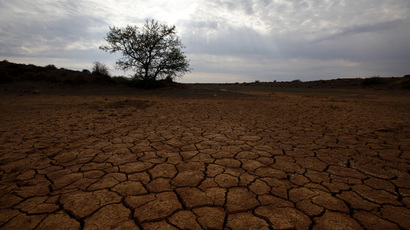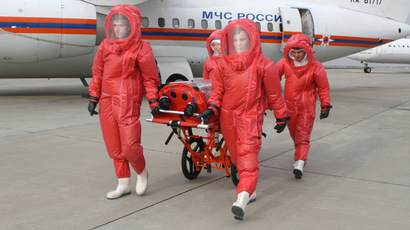Fidel Castro offers cooperation with US in fight against Ebola

Fidel Castro has expressed Cuba’s readiness to cooperate with the US in the global fight against Ebola. Cuba has been on the frontline of international response to the worst outbreak in the disease's history.
In his article “Time of Duty,” which was published on Saturday, the retired Cuban leader said that medical staff trying to save lives are the best example of human solidarity. Fighting together against the epidemic can protect the people of Cuba, Latin America, and the US from the deadly virus, he added.
“We will gladly cooperate with American [medical] personnel in this task – not for the sake of peace between the two states which have been adversaries for many years, but for the sake of peace in the world,” wrote Castro.
As the Ebola death toll currently stands at more than 4,400, the United Nations is urging the global community to help tackle the outbreak. Even to simply slow down the virus' spreading pace, international aid would have to increase 20-fold, said UN Secretary-General Ban Ki-moon.
“We need at least a 20-fold surge in assistance – mobile laboratories, vehicles, helicopters, protective equipment, trained medical personnel, and medevac capacities,” he said.
Cuba was one of the first countries to send medical staff to the West African nations fighting the epidemic. A group of 165 health workers arrived in Sierra Leone, Liberia, and Guinea, and several more groups are expected there. The Cuban team consists of 100 nurses, 50 doctors, three epidemiologists, three intensive care specialists, three infection control specialist nurses, and five social mobilization officers.

This is the largest foreign medical team from a single country to take up the call since the beginning of the outbreak.
“Cuba is the only one that I know is responding with human resources in terms of health doctors and nurses,” said Nkosazana Dlamini-Zuma, chairwoman for the African Union.
Although Cuba is far from being a prospering economy, it boasts one of the best medical systems in the world, and often lends a helping hand in the aftermath of natural disasters and epidemics.
Cuba provided care to about 40 percent of the victims of the Haiti earthquake in 2010, and almost 50,000 Cuba-trained health employees work in many countries across the globe.
On Monday, Havana will host a summit of leaders of the Bolivarian Alliance for the Americas (ALBA), aimed at ramping up Ebola response support.
In the past, Cuba had close ties with many African states. It previously sent troops to Angola and helped Nelson Mandela in his fight against Apartheid. It has also sent doctors to conflict-affected countries around the world.
US State Secretary of State John Kerry on Friday spoke about Cuba as one of the "nations large and small stepping up in impressive ways to make a contribution on the front lines."















